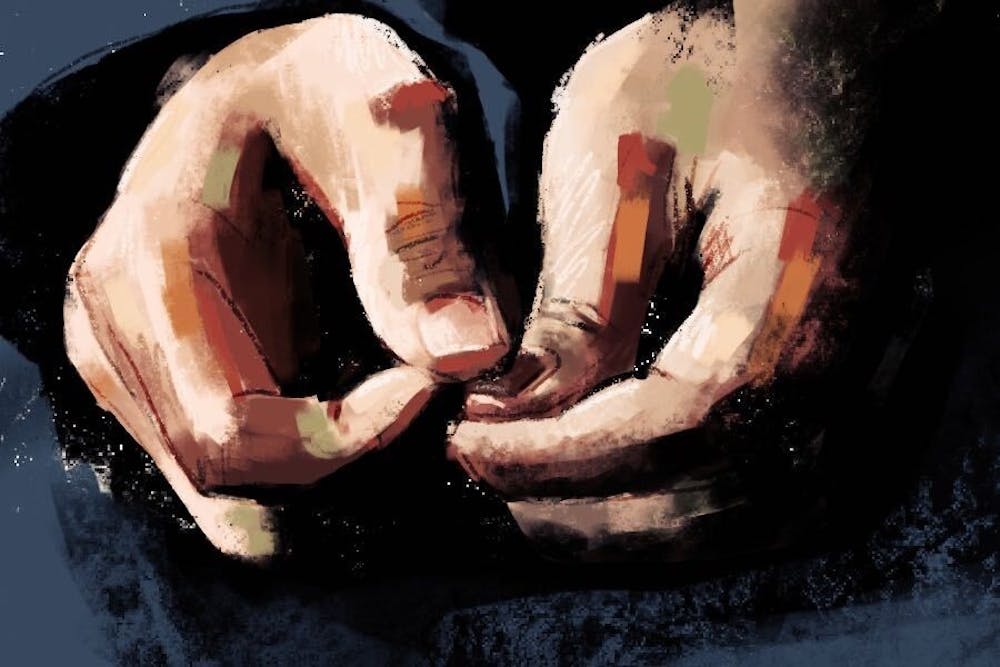
Obsessive-Compulsive Disorder is incredibly misunderstood and too often used for comedic relief. You can easily find news articles joking on the matter, Twitter hashtags using #soOCD, and other social media outlets trivializing this mental disorder. But OCD is not a personality quirk to describe someone with particular preferences, nor is it the reason why your bedroom is so clean or your desk is so neat.
Many people deem themselves perfectionists or pay great attention to detail, but we must differentiate these habits from a very real mental condition. Anyone can obsess or worry over something without it being considered a disorder; being anxious or hyper-vigilant are normal and inevitable reactions that everyone experiences from time to time. But don’t proclaim yourself or others as having OCD merely due to your preoccupation with cleanliness.
Rather than pinpointing assumed compulsions or stereotypical symptoms of the disorder, we must acknowledge that OCD is more so a cognitive pattern. I was clinically diagnosed with OCD in 2017, and I’ve taken medication and sought Exposure and Response Prevention (ExRP) therapy — a specialized cognitive-behavioral therapy for OCD. The more frequently a person with OCD engages in compulsions, the more prominent the obsessions become, therefore creating a seemingly endless cycle.
It takes courage to confront fears head-on during exposure therapy. ExRP provided me with the necessary skills and strength to expose myself to my particular fears, whilst refraining from my usual compulsions. Doing such exposures obviously isn’t desirable, but for those with OCD, their fears become so consuming that they must experience the accompanied distress. In doing so, they also experience the inevitable decline in anxiety over time. Although it may not feel as such, they learn that the heightened anxiety will pass, and their triggers or obsessions become less intense and less feared.
Here’s the irony: I’ve been vomited on, yet I reacted with no more disgust than the average person. I share food and utensils with all my friends, and I rarely clean my room or take out the trash. Anyone who knows me, including my previous therapists, can vouch how much I dread having to clean. Too often, I’ll hear people commenting on how much they love cleaning, or how cleaning relieves stress for them — but for me, this couldn’t be more false.
Having OCD does not equate to perfectionism, cleanliness, tidiness, or prudence — despite widespread media portrayal and cultural notions. In fact, it’s reported that only 25% of people with OCD will engage in the stereotypical cleaning behavior. Although Contamination OCD and Checking OCD are subtypes of the disorder, OCD manifests itself in many ways that unfortunately many people aren’t cognizant of. More specifically, other OCD subtypes include but are not limited to: fears about unintentionally hurting a loved one, having unwanted and repetitive sexual thoughts, a need for everything to “feel right,” and a tendency to hoard or preserve unnecessary possessions.
Those with OCD don’t engage in compulsive behavior simply because they want to, but rather because they feel compelled to do so. They fear the consequences and the irrational, unwanted thoughts that follow if they don’t perform a specific compulsion. However, they don’t feel satisfied merely from engaging in their compulsions. OCD is driven by unwavering intrusive thoughts that plague one’s mind long before and after the ritual is completed, lending to the characteristic cycle of obsessions and compulsions. Let’s not perpetuate misconceptions that OCD is merely about cleanliness and order. Even for those with OCD who do fret over hand-washing and triple-checking, their distress doesn’t subside from completing compulsions, but instead persists long after.
Just as you should never “compliment” someone with an eating disorder for staying healthy or being mindful of their eating habits, stop applauding someone for being “so OCD” — doing so undermines a debilitating disorder and fuels a toxic stereotype. This is just one step towards combating mental health stigma, which can only be accomplished through concrete solutions.
Remember that OCD causes significant distress and affects daily functioning, whereas adhering to hygienic guidelines during a pandemic is rational, standard, and logical. OCD is very much an emotional, mental process; suffering from OCD is not a beneficial mindset that we should aspire to. Rather, we can aspire to the resilience it takes for those with OCD to continue on with their days despite continuous, intrusive thoughts.

BRIDGET YU is a rising College junior from Los Angeles, CA studying Psychology. She plans to attend medical school and specialize in psychiatry. Her email address is bridgtyu@sas.upenn.edu.
Have opinions of your own you would like to share? Submit a guest column.
The Daily Pennsylvanian is an independent, student-run newspaper. Please consider making a donation to support the coverage that shapes the University. Your generosity ensures a future of strong journalism at Penn.
Donate







